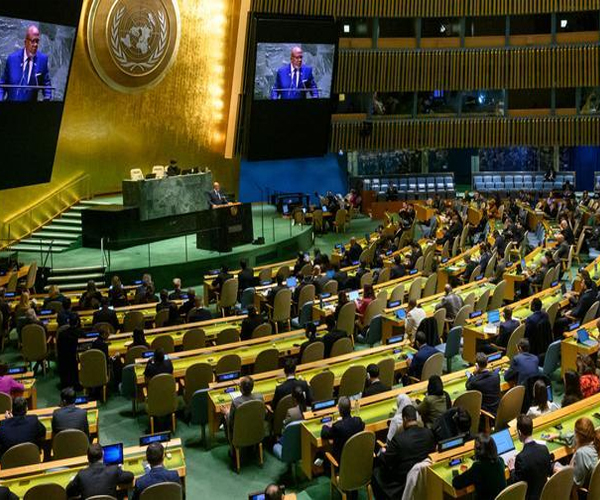The United Nations has adopted the first global resolution on artificial intelligence as part of an effort to ensure the technology remains “safe, secure and trustworthy”. The non-binding resolution, drafted by the U.S. and co-sponsored by China and more than 122 other nations, also advocates the strengthening of privacy policies and the protection of data. The resolution is the latest in a series of initiatives – few of which carry teeth – by governments around the world to influence AI’s development, amid concerns it could disrupt democratic processes, eliminate millions of jobs, or play a role in warfare, among other harms. “AI must be in the public interest – it must be adopted and advanced in a way that protects everyone from potential harm and ensures everyone is able to enjoy its benefits,” U.S. vice-president Kamala Harris said in a statement. Lawyer Niamh Lenihan wrote on LinkedIn that the move is a “historic step towards regulating AI, with implications for peace, security, and responsible military use of AI autonomy.”
Global AI regulations or resolutions can offer several benefits to developing countries. Here is a general overview of the advantages:
Level Playing Field: Global AI regulations ensure a level playing field for developing countries in the AI landscape. By establishing common standards and guidelines
Ethical Frameworks: Global AI regulations promote ethical considerations in AI development and deployment.
Data Access and Sharing: Access to quality data is crucial for AI development. Global AI regulations can promote data access and sharing mechanisms.
Collaboration and Knowledge Sharing: Global AI regulations foster collaboration and knowledge sharing among countries.
Source: Linkedin



